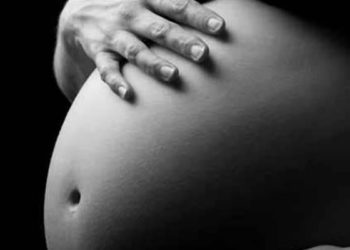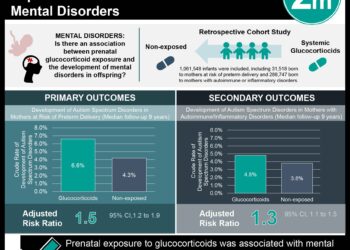Increased vitamin D supplementation during pregnancy may not decrease childhood wheezing
1. Increased supplementation of vitamin D during the third trimester of pregnancy is not associated with the risk of persistent wheeze in offspring.
2. Increased supplementation of vitamin D was safe during pregnancy and was associated with a lower number of episodes of troubling lung symptoms in children.
Evidence Rating Level: 1 (Excellent)
Study Rundown: Asthma is the most common chronic disease of childhood and often begins in early childhood. Supported by recent observational studies, the levels of vitamin D during pregnancy have been purported to have a possible effect on the development of asthma in offspring. Therefore, this study sought to assess the effects of increased vitamin D supplementation during the third trimester of pregnancy on the rates of asthma and recurrent wheezing in a child’s early life. Adherence to the supplementation was high and resulted in increased levels of serum vitamin D in patients in the intervention group. However, the study was unable to find a significant difference in the rate of recurrent wheeze diagnosed during the first 3 years of life in the offspring of these pregnancies. Though there was a trend towards a lower risk of recurrent wheeze in the increased supplementation cohort, the study may have been underpowered to find a true difference. The study was designed to enroll more than 700 participants, but, due in part to ethical concerns, it failed to achieve this goal. Thus, while this study did show that increased vitamin D supplementation is safe during the third trimester of pregnancy, it was unable to clearly address whether administration of vitamin D has an effect on childhood rates of recurrent wheeze.
Click to read the study, published today in JAMA
Relevant Reading: Vitamin D deficiency as a risk factor for childhood allergic disease and asthma
In-Depth [randomized controlled trial]: This double-blind, randomized controlled clinical trial enrolled pregnant women from Denmark at a single center between March, 2009 and November, 2010. Despite inviting more than 50 000 women to participate, the study enrolled only 623 women between 22 and 26 weeks of gestation, who did not have any serious comorbidities or a high level of baseline vitamin D supplementation. These women were all taking 400 IU of vitamin D per day upon enrollment and were randomized to receive either 2400 IU of extra vitamin D or a placebo daily, between the 24th week of pregnancy and 1 week post-partum. Maternal serum vitamin D levels were assessed at 24 weeks and birth, and the 581 children from these pregnancies were evaluated at regular intervals over the first 3 years of life. The primary outcome was the rate of children diagnosed with persistent wheeze. Among the increased vitamin D cohort, 16% were diagnosed with persistent wheezing, compared to 20% in the control group (p = 0.16). However, the average number of episodes of troubling lung symptoms, defined as 3-or-more days of any cough, wheeze, or dyspnea, was lower in the increased vitamin D cohort (5.9 events vs. 7.2 events, IRR 0.83, 95%CI 0.71–0.97). With regards to safety, the rates of intrauterine death (<1% vs 1%) and congenital malformations (5% vs 8%) were also similar among the increased supplementation and control groups, respectively.
Image: PD
©2016 2 Minute Medicine, Inc. All rights reserved. No works may be reproduced without expressed written consent from 2 Minute Medicine, Inc. Inquire about licensing here. No article should be construed as medical advice and is not intended as such by the authors or by 2 Minute Medicine, Inc.





![Triple-combo chemotherapy improves survival for metastatic colon cancer [TRIBE study]](https://www.2minutemedicine.com/wp-content/uploads/2014/10/640px-Cyclophosphamide_iv-75x75.jpg)

![Galangin may sensitize apoptosis-resistant renal carcinoma cells [PreClinical]](https://www.2minutemedicine.com/wp-content/uploads/2016/01/Papillary_renal_cell_carcinoma_-_very_high_mag-75x75.jpg)